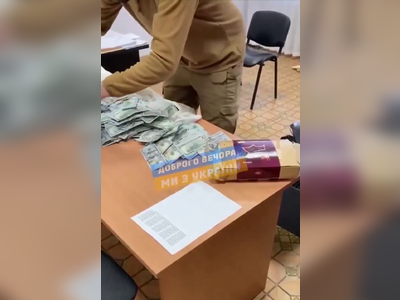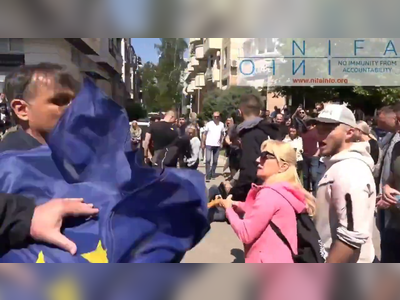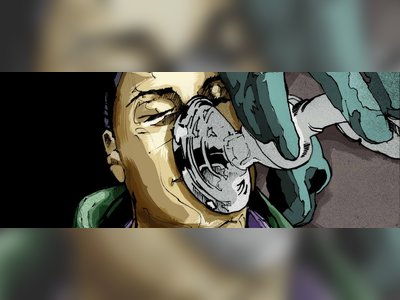
Belgian Court to Decide on Ursula von der Leyen’s Immunity in Vaccine Procurement Dispute
The President of the EU Commission is accused of corruption and procedural breaches in COVID-19 vaccine agreements, while a Belgian court is evaluating her immunity.
A court in Liège, Belgium, is slated to rule on January 6, 2025, on whether Ursula von der Leyen, President of the European Commission, retains her legal immunity in a case tied to corruption allegations during COVID-19 vaccine procurement.
This decision comes after a complaint was lodged by Belgian lobbyist Frederic Baldan, who accuses von der Leyen of corruption, destroying public documents, and procedural breaches.
Case Background
The allegations against von der Leyen originate from claims that she engaged in secret SMS negotiations with Pfizer CEO Albert Bourla to secure a €35 billion contract for 1.8 billion COVID-19 vaccine doses.
Baldan claims these negotiations circumvented EU member states and lacked transparency.
Von der Leyen has claimed the SMS messages were "accidentally deleted." The court might inadvertently believe her...
The initial hearing took place on May 17, 2024, where the court asserted its jurisdiction over the case.
However, further proceedings were delayed due to an objection from the European Public Prosecutor’s Office (EPPO), arguing von der Leyen’s immunity, as EU Commission President, protects her from prosecution.
Charges and Allegations
The accusations against von der Leyen include:
1. Usurpation of functions and title: Allegedly bypassing established procurement protocols.
2. Destruction of public documents: Accusations of SMS deletion during significant vaccine negotiations.
3. High-level corruption: Allegations of clandestine dealings with Pfizer.
The EPPO, responsible for investigating financial crimes in EU institutions, has backed von der Leyen’s claim of immunity.
Critics, including Baldan, question the EPPO’s impartiality, accusing it of defending von der Leyen instead of examining corruption allegations.
Frederic Baldan’s Involvement
Frederic Baldan, the complainant, remains a key figure in the controversy known as “Pfizergate.” In 2023, he filed a criminal complaint accusing von der Leyen of authority abuse, document destruction, and corruption concerning vaccine negotiations.
Baldan argues these actions breached EU regulations and financially harmed public funds.
Next Steps
The Belgian court’s ruling on January 6 will decide if von der Leyen’s immunity is applicable to this case.
If the court rules against her immunity, the allegations could result in formal proceedings against the European Commission President.
The outcome of this hearing will bear significant consequences for accountability and transparency within EU institutions.
This case highlights ongoing concerns over COVID-19 vaccine procurement processes and their broader impact on governance and oversight within the EU.
This decision comes after a complaint was lodged by Belgian lobbyist Frederic Baldan, who accuses von der Leyen of corruption, destroying public documents, and procedural breaches.
Case Background
The allegations against von der Leyen originate from claims that she engaged in secret SMS negotiations with Pfizer CEO Albert Bourla to secure a €35 billion contract for 1.8 billion COVID-19 vaccine doses.
Baldan claims these negotiations circumvented EU member states and lacked transparency.
Von der Leyen has claimed the SMS messages were "accidentally deleted." The court might inadvertently believe her...
The initial hearing took place on May 17, 2024, where the court asserted its jurisdiction over the case.
However, further proceedings were delayed due to an objection from the European Public Prosecutor’s Office (EPPO), arguing von der Leyen’s immunity, as EU Commission President, protects her from prosecution.
Charges and Allegations
The accusations against von der Leyen include:
1. Usurpation of functions and title: Allegedly bypassing established procurement protocols.
2. Destruction of public documents: Accusations of SMS deletion during significant vaccine negotiations.
3. High-level corruption: Allegations of clandestine dealings with Pfizer.
The EPPO, responsible for investigating financial crimes in EU institutions, has backed von der Leyen’s claim of immunity.
Critics, including Baldan, question the EPPO’s impartiality, accusing it of defending von der Leyen instead of examining corruption allegations.
Frederic Baldan’s Involvement
Frederic Baldan, the complainant, remains a key figure in the controversy known as “Pfizergate.” In 2023, he filed a criminal complaint accusing von der Leyen of authority abuse, document destruction, and corruption concerning vaccine negotiations.
Baldan argues these actions breached EU regulations and financially harmed public funds.
Next Steps
The Belgian court’s ruling on January 6 will decide if von der Leyen’s immunity is applicable to this case.
If the court rules against her immunity, the allegations could result in formal proceedings against the European Commission President.
The outcome of this hearing will bear significant consequences for accountability and transparency within EU institutions.
This case highlights ongoing concerns over COVID-19 vaccine procurement processes and their broader impact on governance and oversight within the EU.
AI Disclaimer: An advanced artificial intelligence (AI) system generated the content of this page on its own. This innovative technology conducts extensive research from a variety of reliable sources, performs rigorous fact-checking and verification, cleans up and balances biased or manipulated content, and presents a minimal factual summary that is just enough yet essential for you to function as an informed and educated citizen. Please keep in mind, however, that this system is an evolving technology, and as a result, the article may contain accidental inaccuracies or errors. We urge you to help us improve our site by reporting any inaccuracies you find using the "Contact Us" link at the bottom of this page. Your helpful feedback helps us improve our system and deliver more precise content. When you find an article of interest here, please look for the full and extensive coverage of this topic in traditional news sources, as they are written by professional journalists that we try to support, not replace. We appreciate your understanding and assistance.











